Summer Research Students Seek Greener Medical Solutions
Jul 25, 2023
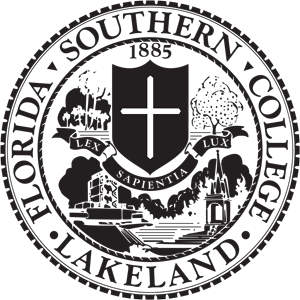
Associate Professor of Chemistry, Dr. Bromfield Lee, has four students conducting research in her Florida Southern College lab that is helping them clarify their career interests, while possibly resulting in safer, greener chemistry methods.
Green chemistry is the principle of designing chemical products and processes to reduce or eliminate the use or production of hazardous substances. It aims to deliver cost-competitive chemical products and processes that achieve the same function as more hazardous alternatives, while reducing pollution at the source.
"Not only are they [the students] making new compounds, but these compounds are derived from things that are natural," Dr. Bromfield Lee said. "They're also producing them in what we call a cleaner fashion, meaning that they're trying to do more environmentally safe reactions so people working on them in the future are protected."
Learning Their Way Around the Lab
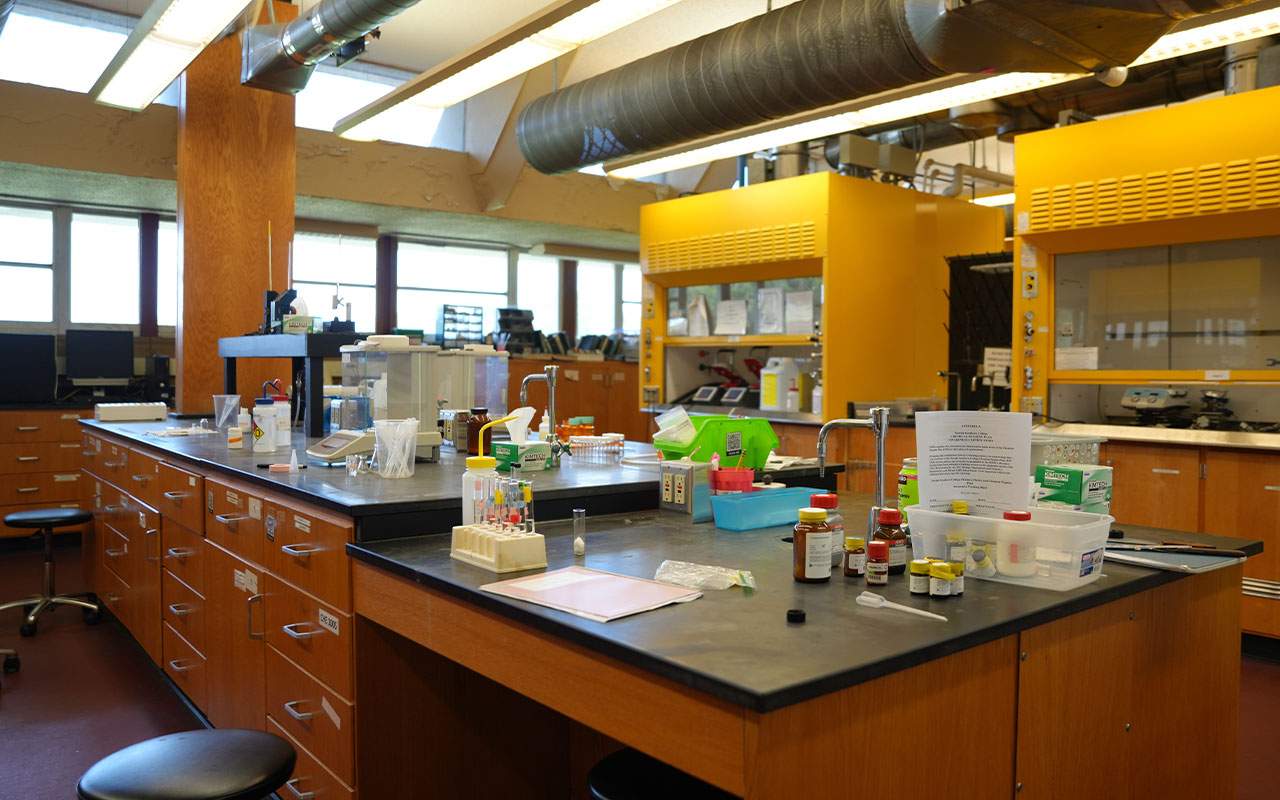
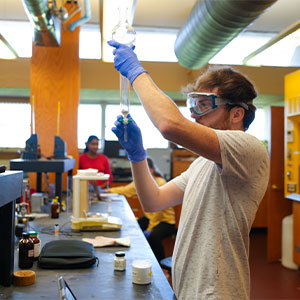
Their summer experiences are laying a foundation for more advanced research opportunities and potentially post-graduation jobs, familiarizing them with laboratory equipment and etiquette.
Biochemistry and molecular biology major Jason Rowe '26, from Palm Coast, Fla., is working with molecules called chalcones that are used for their antimicrobial and antibacterial properties.
Rowe’s research is particularly useful in organic chemistry and medicinal science, two fields that he is interested in pursuing as a career.
"I haven't actually taken organic chemistry yet, but I learned some things here during the summer that will help me with the class later," Rowe said. "I just wanted to do research and be in the lab and start working on my skills, and I was really interested in antibiotics and producing them, so I wanted to come work on this project."
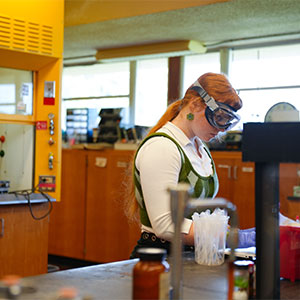
Chemistry major Halle Haumbaugh '26, who is from Haubstadt, Ind., is working with Rowe to synthesize chalcones.
"I wanted to take this opportunity to do research so I could apply for an REU (Research Experience for Undergraduates) next summer," Haumbaugh said. "I have loved working on something that is so emotionally fulfilling. To me, it means a lot to be working on something that has so much potential. It pushes me to do my best whenever I'm in the lab."
Laying the Foundation for More Research
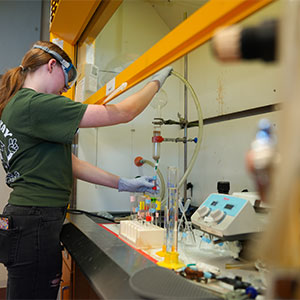
Chemistry major Jenna McHardy '26 is from Jacksonville, Fla, and is minoring in biology. She uses greener chemistry methods in her research.
"I'm making these compounds called stilbenes (phytochemicals found in foods)," McHardy said. "Those have been found to have anticancer properties. So, I'm going to take this summer project and use it as my senior thesis because I'm in the honors program. This summer, I'm mainly working on making those stilbenes in the lab and just finding greener methods. Over the next two years, I will also be working with Dr. Carmen Gauthier (FSC Professor of Chemistry and Jessie Ball DuPont Fund Chair in the Natural Sciences) to do some inorganic coordination complexing with the molecules that I'm making, which are called ligands."
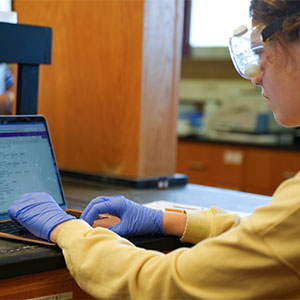
During her senior year, McHardy will also work with FSC Department Chair, Associate Professor of Chemistry, and Dr. John A. Leighty Endowed Chair in Chemistry Chair, Dr. Shameka Shelby, to test molecules for toxicity.
Chemistry major Riley Gwinnup '25, who is from Niceville, Fla., notes she joined the research team this summer intending to use the information she collects to treat diseases like cancer.
"I really like it," Gwinnup said. "This research can pivot very quickly."
Gearing Up for Graduate School
Researching during the summer allows students to actively engage in their learning. They also contribute knowledge to the scientific community and have experiences that undergraduate students at other institutions do not usually have.
"They come up with new ideas," Dr. Bromfield Lee said. "That critical thinking piece is invaluable in any career. There's this idea of understanding where drugs come from and how they're designed. It's not that simple that you just say I want to cure 'this.' No, it's a very involved process, and it's very difficult. For those who want to go to graduate school, they get a lot of hands-on experience, a little bit more than they would normally. All our students do research, but this is a little bit more intensive research. There're no classes going on."
Because FSC students get opportunities to do research, they are better prepared for the graduate school search. Many get to share their work at conferences. Some even publish, making them stand out in the application process.
"I definitely want to go to grad school after this," McHardy said. "I want to get my Ph.D., at least one. I'm specifically interested in organic chemistry, which is what this research is. So, this research is helping me figure out and narrow down what kind of chemistry I'm more interested in. There are so many different forms of chemistry. I just finished the course (organic chemistry) this past year, and I really love chem; I love the materials. So, I said, 'Hey, Dr. Bromfield, can I come do research in your lab this summer?' And she was like, 'Absolutely. Let's write a grant.' So, here I am."